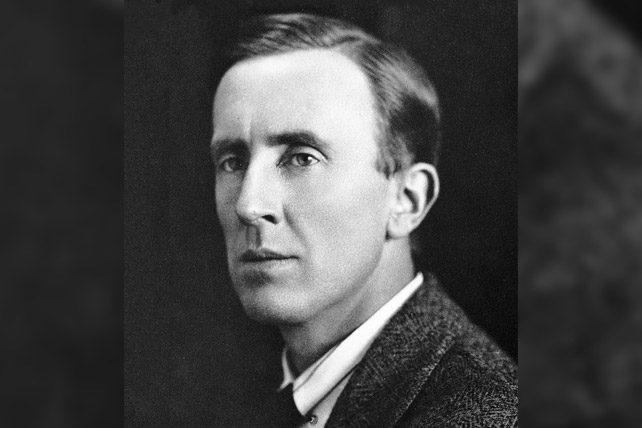J.R.R. Tolkien, known globally for his groundbreaking works such as The Lord of the Rings and The Hobbit, was not only a master storyteller but also a devout Catholic Christian. His faith was not merely a personal conviction; it was a lens through which he viewed the world, deeply influencing his academic pursuits, personal life, and, significantly, his literary creations.
Born in 1892 in Bloemfontein, South Africa, Tolkien moved to England with his family at a young age. Following the death of his father, and later his mother, Tolkien and his brother were brought up by a Catholic priest at the behest of their mother, who had converted to Catholicism. This upbringing laid the foundation for Tolkien’s lifelong devotion to his faith. Tolkien’s Catholicism was a constant throughout his life, shaping his perspectives and values. He attended Mass regularly and was known to partake in the sacraments with fervor. His faith was not just a ritualistic practice but a profound source of comfort and guidance, influencing his view of the world and humanity.
Role of Faith in Personal Life and Academic Career
Tolkien’s Catholic faith was intertwined with his personal and professional life. He married Edith Bratt, who converted to Catholicism, and their marriage and family life were deeply rooted in their shared faith. Professionally, Tolkien was a respected academic, holding a professorship at Oxford University. His scholarly work on medieval literature was not just an academic pursuit but also a reflection of his interest in the Christian underpinnings of Western literary tradition.
Themes in J.R.R. Tolkien’s Literature
Tolkien’s literary works are permeated with themes that resonate with his Catholic beliefs. While he was cautious about direct allegory, preferring his stories to be appreciated for their narrative and mythic qualities, the undercurrents of his faith are undeniable.
Redemption, Sacrifice, and Good vs. Evil
The themes of redemption, sacrifice, and the battle between good and evil are central to Tolkien’s narratives. These themes are not only integral to the Christian faith but are also universal concerns that speak to the human condition. Tolkien’s depiction of Middle-earth is a testament to his belief in the power of grace, the necessity of sacrifice for the greater good, and the ultimate triumph of good over evil.

